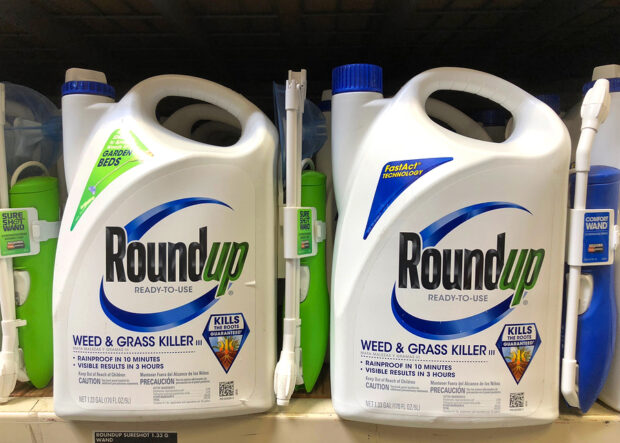A Pennsylvania judge on Tuesday slashed a $2.25 billion U.S. verdict against Bayer to $400 million for a Pennsylvania man who said he developed cancer from exposure to the company’s Roundup weedkiller.
A jury in the Philadelphia Court of Common Pleas found that John McKivison’s non-Hodgkins lymphoma was the result of using Roundup for yard work at his house for several years, and it ordered Bayer to pay $250 million in compensatory damages and $2 billion in punitive damages.
Judge Susan Schulman granted some of Bayer’s post-trial motions challenging that verdict, reducing compensatory damages to $50 million and punitive damages to $350 million.
Bayer said it would continue to appeal to the Superior Court of Pennsylvania, challenging the trial court’s decision to allow the jury to hear what it called misleading and “inflammatory” testimony.
“While the court’s decision reduces the unconstitutionally excessive damage award, we still disagree with the ruling on the liability verdict, as the trial was marred by significant and reversible errors,” a Bayer spokesperson said Tuesday.
Bayer also called for U.S. legislative reform to protect companies whose products comply with federal labeling requirements.
Bayer has said that decades of studies have shown Roundup and its active ingredient, glyphosate, are safe for human use.
Roundup is among the most widely used weedkillers in the United States, though the company phased out its sales for home use last year.
But the company has taken a string of losses in Roundup trials in late 2023 and early 2024, resulting in more than $4.25 billion in verdicts. Some of those verdicts, like McKivison’s, were later reduced, but the cases ended a nine-trial winning streak for Bayer and shattered investor and company hopes that the worst of the Roundup litigation was over.
Around 165,000 claims have been made in the U.S. against the company for personal injuries allegedly caused by Roundup, which Bayer acquired as part of its $63 billion purchase of U.S. agrochemical company Monsanto in 2018. Most plaintiffs, like McKivison, allege that the product caused non-Hodgkins lymphoma.
In 2020, Bayer settled most of the then-pending Roundup cases for up to $9.6 billion but failed to get a settlement covering future cases. More than 50,000 claims remain pending.
Related:
- Bayer’s $1.5 Billion Roundup Verdict Slashed to $600 Million
- Bayer Plans Renewed Push for Legal Shield Against Cancer-Related Lawsuits
- Bayer Notches More Wins in Roundup Weedkiller Cancer Trials





















 What Analysts Are Saying About the 2026 P/C Insurance Market
What Analysts Are Saying About the 2026 P/C Insurance Market  How Americans Are Using AI at Work: Gallup Poll
How Americans Are Using AI at Work: Gallup Poll  RLI Inks 30th Straight Full-Year Underwriting Profit
RLI Inks 30th Straight Full-Year Underwriting Profit  Insurance Groundhogs Warming Up to Market Changes
Insurance Groundhogs Warming Up to Market Changes 